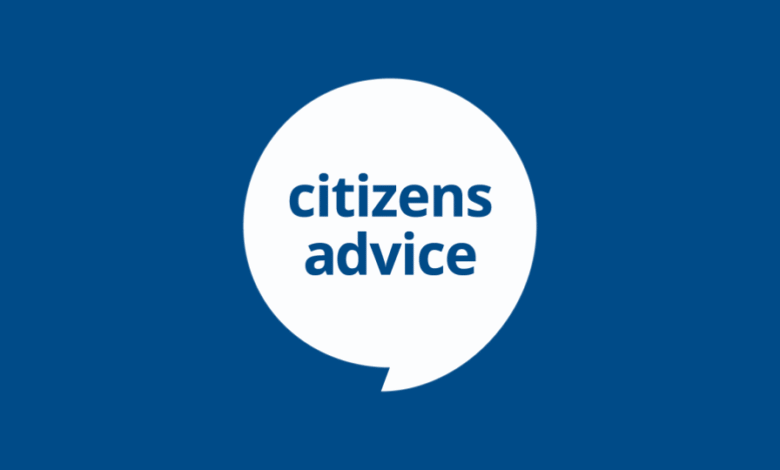Citizens Advice

Citizens Advice: Your Guide to Free Help and Support
Introduction
When life throws you a problem—whether it’s with benefits, debt, consumer rights, housing, or employment—knowing where to turn can feel overwhelming. That’s where citizens advice comes in. Citizens advice provides free, impartial, and confidential support to help you understand your rights and make informed decisions. In this article, you’ll learn what citizens advice is, how it works, the services offered, and how to access it.
What Is Citizens Advice?
Citizens advice is a network of independent charities (often called “bureaux”) that offer free guidance on a wide range of issues. (Citizens Advice)
Key principles that define citizens advice are:
- Free: No charge for help received
- Confidential: Your issues are handled privately
- Impartial: Advice is neutral and unbiased
- Independent: Operates autonomously, even if it receives some public funding (Wikipedia)
Because of this, citizens advice is trusted as a safe place for people to seek help without fear of being judged or pressured.
History and Evolution
The idea of citizens advice began around 1939, when the first advice bureaux opened in the UK in response to wartime needs. (Wikipedia)
Over time, the service evolved:
- It expanded its scope beyond wartime assistance to cover everyday legal, financial, and social issues
- It adopted new ways to deliver advice (in person, by phone, online)
- The name “Citizens Advice” (dropping “Bureau”) was adopted in modern times to reflect its broader reach (Wikipedia)
Today, citizens advice is a vital resource across England, Scotland, Wales, and Northern Ireland, with many local offices and a national coordination body.
What Services Do Citizens Advice Offer?
Citizens advice supports people in many areas. Here are some common services:
1. Benefits & Welfare Rights
They help you find out what benefits or financial support you may qualify for and guide you through application or appeal processes.
2. Debt & Money Issues
If you are struggling with repayments, budgeting, or dealing with creditors, citizens advice can explain your options, help negotiate with lenders, or refer you to debt management support.
3. Consumer Rights
They support you when you have disputes about goods, services, unfair charges, or faulty products. The Citizens Advice consumer helpline is a key tool for this. (Citizens Advice)
4. Housing & Homelessness
If you face eviction, poor living conditions, or landlord problems, citizens advice can help you understand your legal rights as a tenant.
5. Employment & Discrimination
They offer guidance on contracts, unfair dismissals, discrimination in the workplace, and employment law rights.
6. Legal and Immigration Issues
While not all offices provide full legal representation, citizens advice can guide you on pathways, refer you to legal aid, or assist with immigration queries.
7. Witness Support (in Courts)
In England and Wales, citizens advice runs the Witness Service, offering emotional and practical support to people giving evidence in criminal courts. (Wikipedia)
8. Campaigning & Policy Research
Because citizens advice sees recurring patterns of problems faced by individuals, it compiles data and pushes for systemic changes (e.g. in housing, benefits, consumer law). (Wikipedia)
How To Get Help from Citizens Advice
Here are typical access routes:
- Visit a local office: Many communities have a Citizens Advice bureau you can walk into
- Phone helpline / call center: Speak to an adviser by telephone
- Online or email / webchat: Use their website to ask questions or get support digitally (Citizens Advice)
- Appointments / outreach services: In some places you may be able to book face-to-face sessions or meet in outreach venues
- Referrals: If your issue is complex, citizens advice may refer you to solicitors, specialist organizations, or further support services
When you approach citizens advice, you’ll typically discuss your problem, provide relevant documents, and the adviser will outline your possible options. They won’t force a decision; their role is to empower you. (Citizens Advice Hart)
Why Citizens Advice Matters
- Accessibility: Everyone can use it regardless of income, identity, or background
- Preventing harm: Early advice can prevent small problems from becoming crises
- Empowerment: People learn about their rights and feel more in control
- Systemic change: Through data and campaigning, citizens advice influences public policy
- Value for money: Research shows the social, economic, and personal benefit often outweighs the cost of delivery (Wikipedia)
Challenges and Criticisms
While citizens advice is highly respected, it does face challenges:
- Funding pressures: Because part of its funding comes from government or local bodies, cuts can affect service levels
- Demand surge: In times of economic stress (e.g. energy crisis), more people seek help than the service can easily absorb
- Scope limits: It cannot replace full legal representation, in-depth specialization, or serve all areas universally
- Maintaining neutrality: Balancing impartial advice while campaigning on issues can cause tension
Still, the service adapts, often upgrading digital access, partnering with specialized organizations, and developing training for advisers.
Conclusion
Citizens advice is a powerful resource for anyone needing help with everyday legal, financial, or administrative issues. Whether you’re worried about debt, housing, employment, or rights—and regardless of your background—citizens advice aims to guide you fairly, clearly, and supportively. If you ever feel stuck, seeking citizens advice could be the first smart step toward resolving your problem.
If you like, I can also provide a version of this article tailored to Pakistan’s context (or your country) so it’s more useful locally. Do you want me to do that?
Here’s an FAQ section you can add at the end of your article on citizens advice — it keeps your keyword natural and improves SEO value while giving clear, reader-friendly answers 👇
Frequently Asked Questions (FAQ) about Citizens Advice
1. What is Citizens Advice?
Citizens advice is a free and confidential service that helps people deal with problems related to money, housing, benefits, consumer rights, employment, and more. It aims to ensure everyone understands their rights and can take informed action.
2. Is Citizens Advice a government organization?
No. Citizens Advice is an independent charity, not a government department. However, it often receives some government funding to support its work in local communities.
3. Who can use Citizens Advice?
Anyone can seek help from citizens advice, regardless of income, age, or background. The service is open to all UK residents and available both online and through local offices.
4. Is the advice really free?
Yes. All citizens advice services are completely free. They are funded through donations, government grants, and charitable support.
5. What issues can Citizens Advice help with?
You can contact citizens advice for help with:
- Benefits and welfare
- Debt and money management
- Housing and tenancy problems
- Employment and discrimination issues
- Consumer complaints
- Legal, family, and immigration questions
6. How can I contact Citizens Advice?
You can reach citizens advice in several ways:
- Visit your local Citizens Advice bureau
- Call the national helpline
- Use their official website for online chat or email support
- Access their digital advice library on citizensadvice.org.uk
7. Is Citizens Advice confidential?
Yes. All discussions with citizens advice are kept private and confidential. Your information is not shared without your consent unless legally required.
8. Can Citizens Advice represent me in court?
In most cases, citizens advice provides guidance and information rather than legal representation. However, they can refer you to solicitors or legal aid services if needed.
9. Is Citizens Advice available outside the UK?
The citizens advice service operates mainly in the UK (England, Wales, Scotland, and Northern Ireland). Other countries may have similar organizations under different names.
10. Why is Citizens Advice important?
Because citizens advice empowers people to solve everyday problems, protect their rights, and access fair treatment—especially those who can’t afford private legal or financial help.



